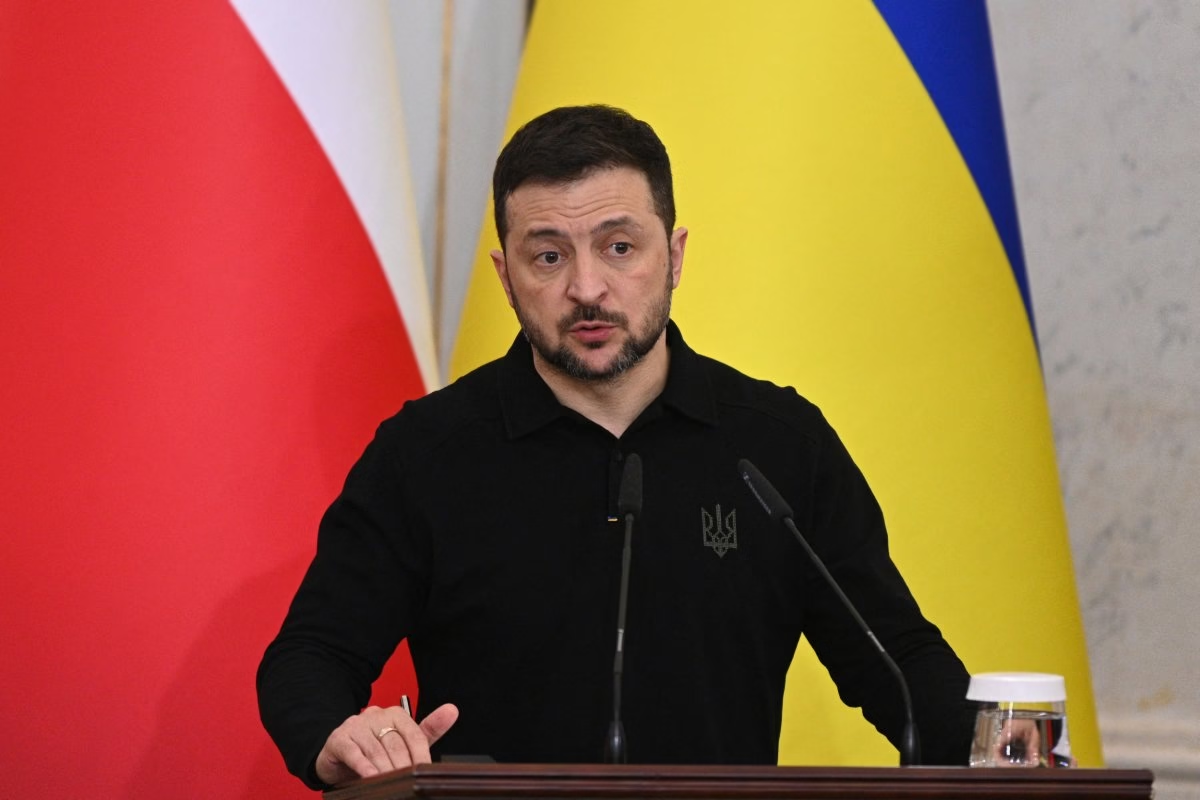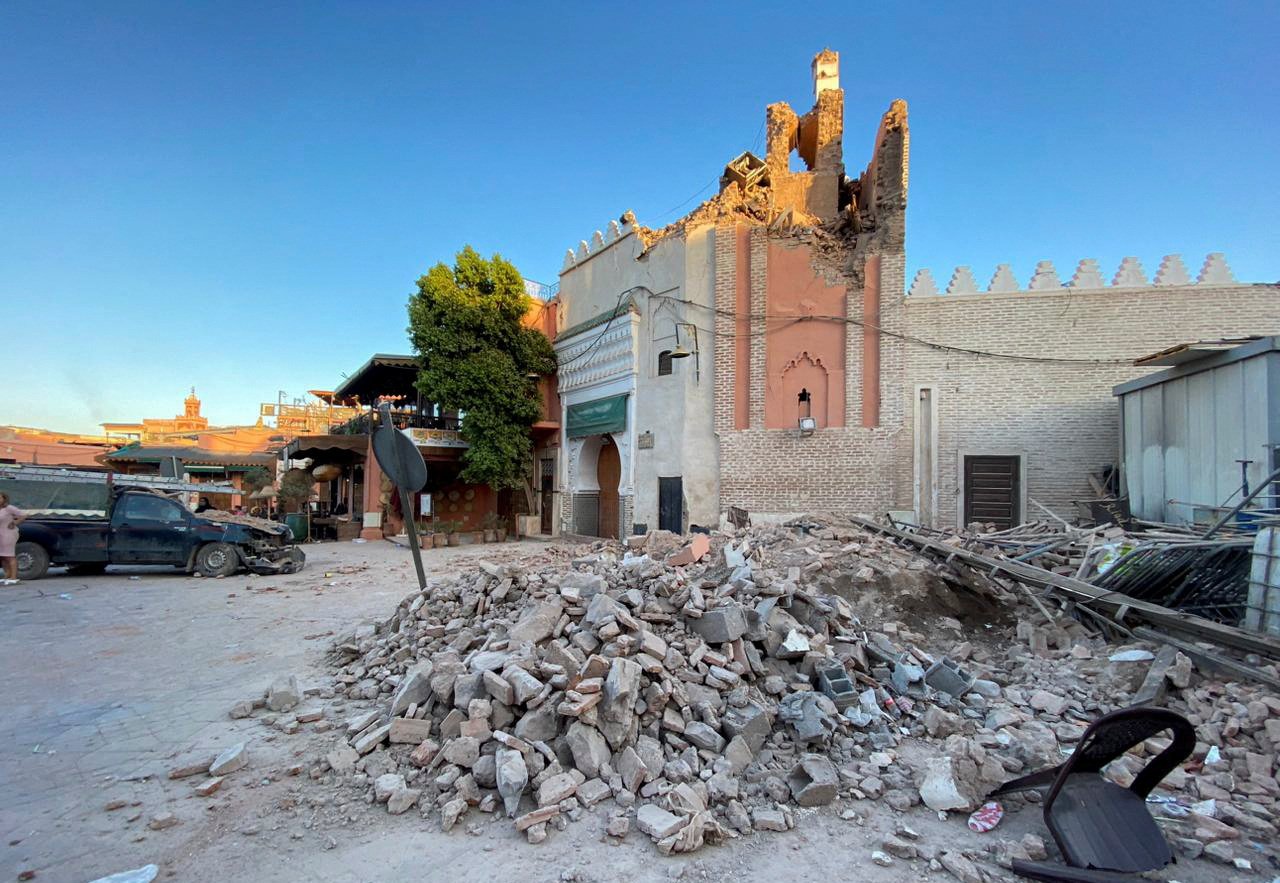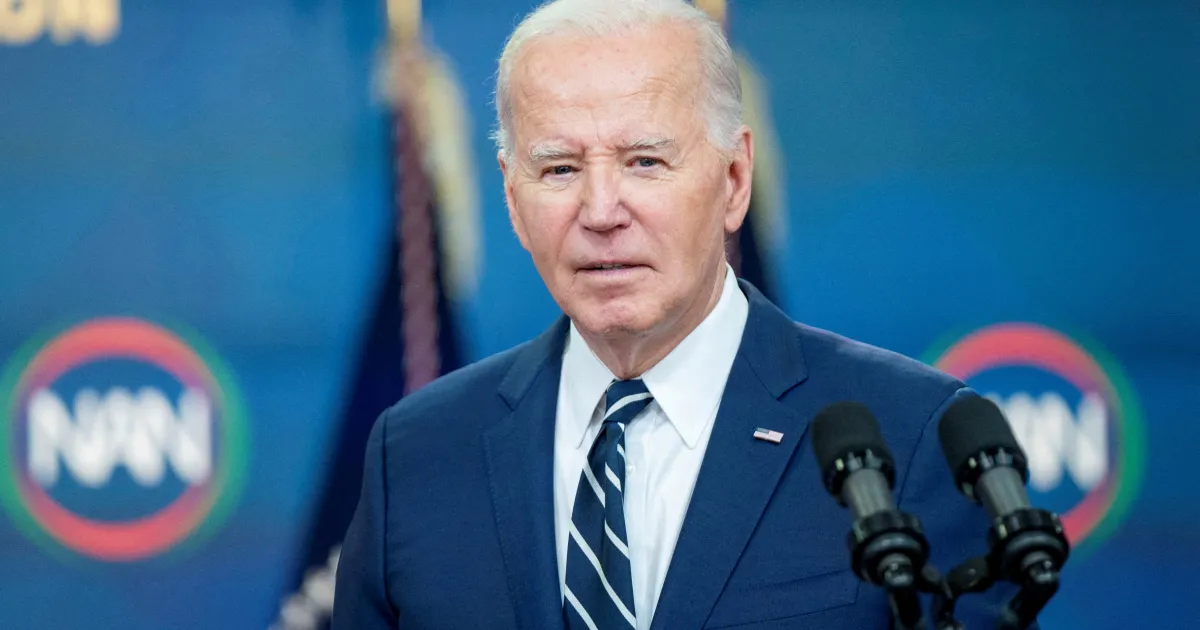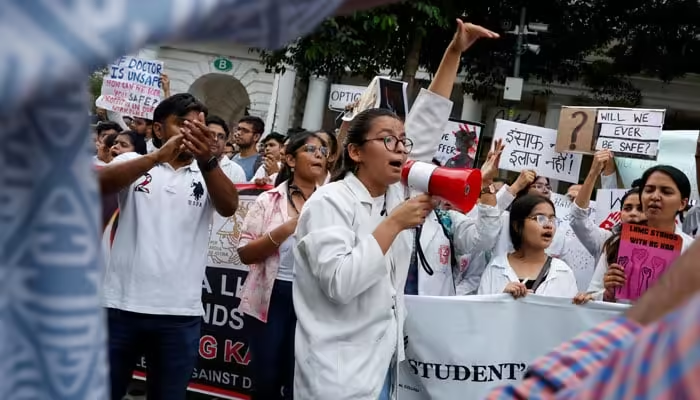Ukrainian President Volodymyr Zelenskyy arrived in the United Arab Emirates (UAE) late Sunday as discussions on potential peace talks with Russia gain traction.
His visit follows the Munich Security Conference in Germany and comes amid reports that U.S. President Donald Trump is considering a meeting with Russian President Vladimir Putin in Saudi Arabia. The UAE, with its large Russian and Ukrainian expatriate population and past role in prisoner exchanges, has also been suggested as a possible venue for negotiations.
Upon arrival in Abu Dhabi, Zelenskyy and First Lady Olena Zelenska were received by Emirati officials and an honor guard. His office emphasized that the trip’s top priority is securing the release of Ukrainian prisoners. Other key areas of focus include economic partnerships, investments, and humanitarian programs.
UAE’s Strategic Role & Defense Expo
Zelenskyy’s visit coincides with the International Defense Exhibition and Conference (IDEX), where both Ukraine and Russia are showcasing weapons. The UAE’s state-run WAM news agency has yet to report on his arrival—an unusual move given the significance of the visit.
Meanwhile, Russian influence in the UAE remains strong, with daily flights between Moscow and Dubai providing a crucial link for Russian elites and those fleeing conscription. Russian capital continues to flow into Dubai’s booming real estate market, prompting concerns from the U.S. Treasury under former President Joe Biden.
Parallel High-Level Talks with Russia
Zelenskyy’s arrival coincides with a visit by Russia’s First Deputy Prime Minister Denis Manturov, who held talks with UAE President Sheikh Mohammed bin Zayed Al Nahyan. The discussions focused on strengthening UAE-Russia ties and expanding economic cooperation.
Additionally, U.S. Secretary of State Marco Rubio is set to lead a delegation to Saudi Arabia for direct talks with Russian officials regarding the war. These diplomatic efforts, along with Trump’s outreach to Putin, mark a significant shift from the Biden administration’s policy of isolating Moscow following its February 24, 2022, full-scale invasion of Ukraine.



